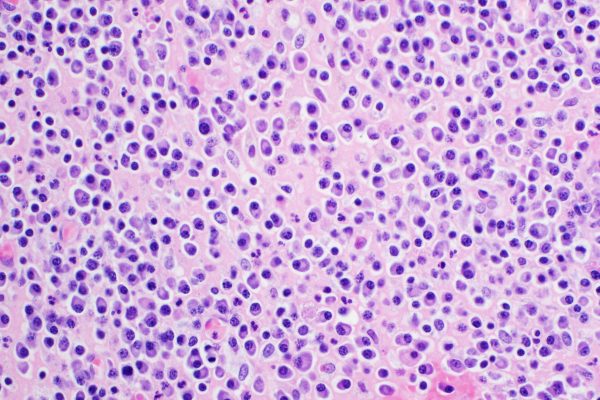
Patients with triple-class-exposed relapsed and refractory (R/R) multiple myeloma (MM) have a poor prognosis. According to a study recently published in The New England Journal of Medicine, the BCMA-directed CAR T-cell therapy idecabtagene vicleucel (ide-cel) significantly improves the progression-free survival and response rate in patients with triple-class-exposed R/R MM who had received 2-4 previous regimens, compared with standard therapy. These findings provide new hope to this patient population who, until now, had poor survival outcomes.
The treatment landscape for relapsed and refractory (R/R) multiple myeloma (MM) has evolved dramatically with the introduction of immunomodulatory agents, proteasome inhibitors, and anti-CD38 monoclonal antibodies in doublet, triplet, or quadruplet combinations. Unfortunately, relapse is still common in this triple-class–exposed patients. After relapse, responses to standard therapies are suboptimal, leading to poor survival outcomes. In the phase 2 KarMMa trial, the use of the BCMA-directed CAR T-cell therapy idecabtagene vicleucel (ide-cel) led to deep, durable responses in triple-class–exposed, heavily pretreated R/R MM patients. These data supported the approval of ide-cel use after receiving at least four previous lines of therapy in patients in the United States, and after receiving at least three previous therapies in patients in the European Union. A new study, the phase 3 KarMMA-3 trial, assessed the efficacy and safety of ide-cel when used earlier in the course of treatment, after 2-4 lines of therapy in R/R MM patients who are refractory to the last regimen.
The phase 3 KarMMa-3 trial included 386 adult patients with R/R MM who had received 2-4 previous regimens (including immunomodulatory agents, proteasome inhibitors, and daratumumab) and who were refractory to the last regimen. These patients were randomly assigned (2:1) to receive either ide-cel (dose range, 150×106 to 450×106 CAR-positive T cells) or standard regimens. The primary endpoint was PFS, with key secondary objectives including overall response rate (partial response or better) and overall survival.
After a median follow-up of 18.6 months, a significant PFS benefit was observed with ide-cel over the standard regimens (mPFS: 13.3 vs. 4.4 months, respectively; HR for disease progression or death[95%CI]: 0.49[0.38 to 0.65]; p<0.001). Ide-cel therapy also resulted in a significantly higher percentage of patients with a response than the standard regimens (71% vs. 42%; p<0.001). A complete response was observed in 39% and 5% of patients, respectively. Data on overall survival were immature at the time of analysis. The safety profile of ide-cel was consistent with that observed in previous studies. Among the patients who received ide-cel, cytokine release syndrome occurred in 88%, with 5% having an event of grade ≥3. Neurotoxic effects occurred in 15%, with 3% having an event of grade ≥3.
In conclusion, ide-cel therapy significantly prolonged the PFS and improved the response rate compared to standard regimens in patients with triple-class-exposed R/R MM who had received 2-4 previous regimens. These findings provide potential support for the use of ide-cel in patients with triple-class–exposed R/R MM, a population with poor survival outcomes.
Reference